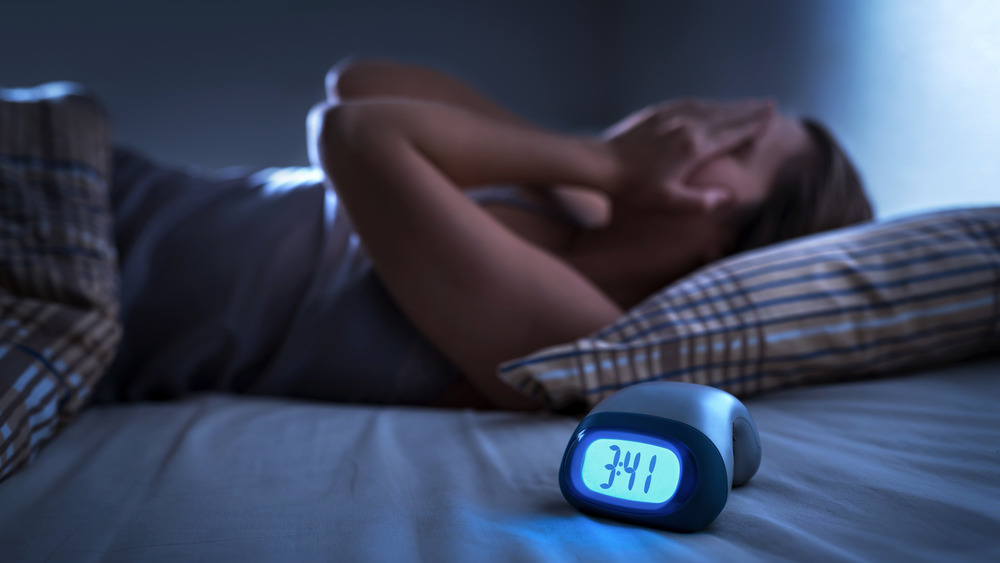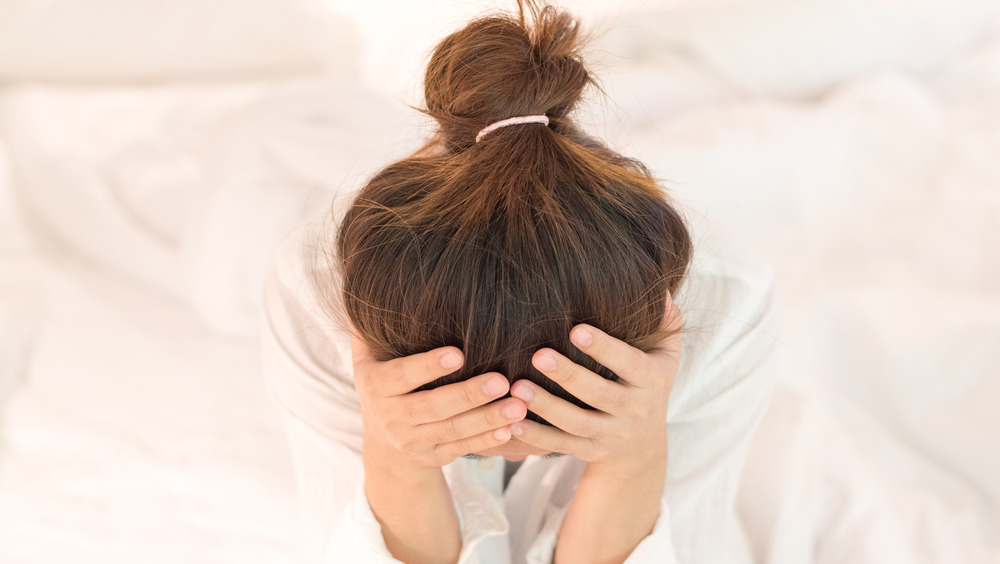If You Keep Getting Headaches At Night, Here's Why
Anything that interrupts your sleep can be annoying, especially if it's painful. Getting a headache at the same time every night could have a few different causes. You might be having hypnic headaches, also known as alarm clock headaches, because they'll wake you up at about the same time every night, according to the American Migraine Foundation.
But there are many other possible causes of getting headaches at night, too, and some of them are similar to hypnic headaches, like migraines or cluster headaches. Stress can cause tension headaches, which are usually described as a band of pain around the head. Staring at a computer screen too much can cause computer vision syndrome, which causes headaches, eyestrain, and neck and shoulder pain. You can get headaches and face pain from grinding your teeth while sleeping, and if you have anxiety or depression, you may be more prone to migraines than others. In rare instances, headaches could also be a symptom of COVID-19.
In very extreme cases, intense and super painful headaches could indicate a brain aneurism. If your pain is unbearable, call 911 or get to an emergency room immediately (via the Brain Aneurysm Foundation).
What are hypnic headaches?
Even though there are many reasons for headaches, if you're having them at night, they're likely to be hypnic headaches. The condition most commonly affects people over 50, but younger people get it, too. Hypnic headaches usually last for 30 to 60 minutes, but can last as long as four hours in some cases. They only happen during sleep and will wake you up between one and three in the morning. Other symptoms may include light sensitivity, sound sensitivity, stuffy nose, nausea, and watery eyes. You'll get these headaches at least 15 times a month and could feel the pain on one or both sides of your head (via Healthline and American Migraine Foundation).
To help ease the discomfort, your doctor may prescribe a cup of coffee or caffeine pill just before bedtime and possibly even a melatonin supplement. Caffeine is the most common treatment for hypnic headaches since it usually doesn't impact sleep for those with hypnic headaches (strange, right?). But prescription medications such as lithium, topiramate, flunarizine, or indomethacin can also help the pain.
If you get headaches or migraines often, see your doctor. He or she will guide you through what's best for you by running various tests and ruling out other conditions. You may need to also see a neurologist for a diagnosis and treatment plan. No matter what the cause, you will learn about the triggers for your specific diagnosis, how to reduce the number of headaches you get, and how to reduce the pain if you do get a headache.


